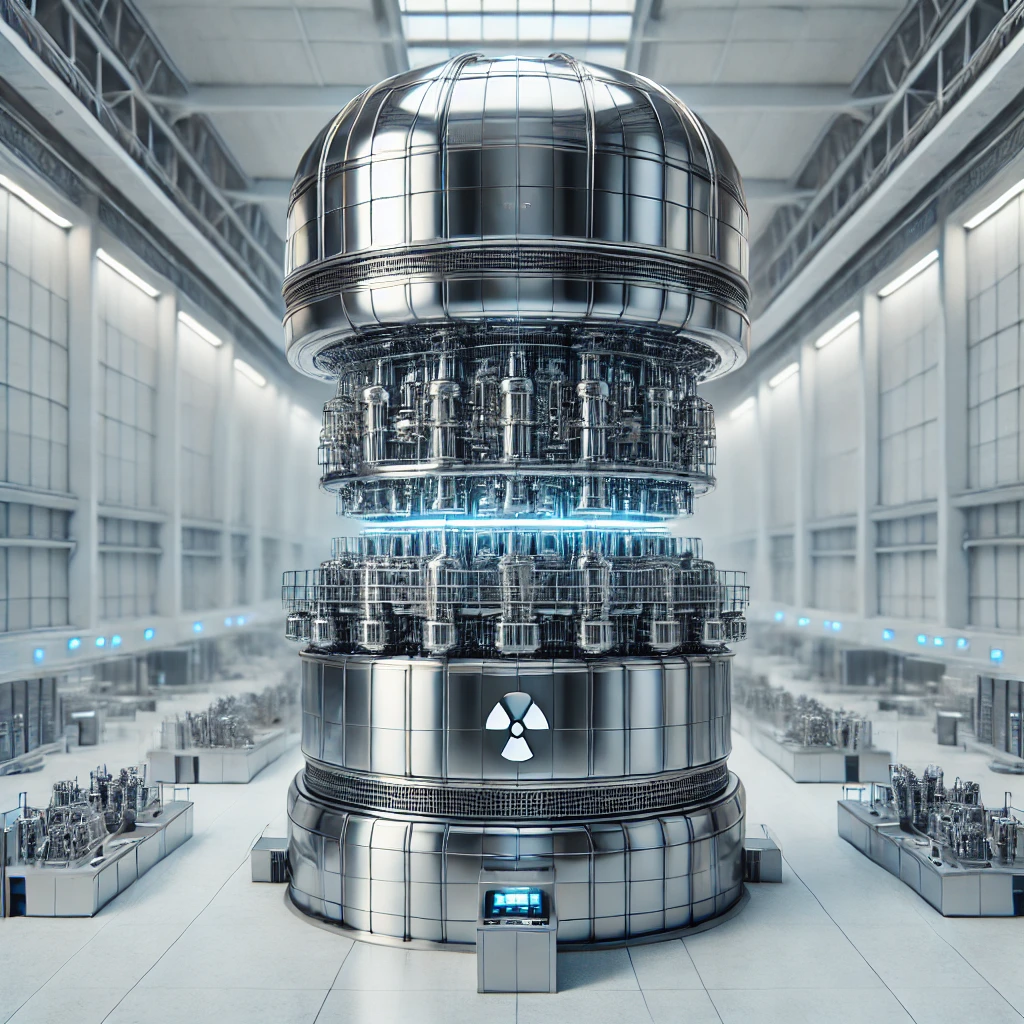
Adaptive SMR Systems
⚛️ Introduction
Adaptive Energy Systems (AES) is revolutionizing the global energy landscape with its Adaptive SMR platform, which integrates Liquid Fluoride Thorium Reactor (LFTR) technology. Unlike conventional reactors, LFTRs harness thorium—a more abundant, stable, and efficient fuel source—to produce clean, reliable power. By embedding LFTR principles into its Adaptive SMR units, AES is setting a new benchmark for safety, sustainability, and scalability, all while maintaining a strong commitment to responsible environmental stewardship.
🌱 Why LFTR for Adaptive SMR?
🌍 Leveraging Thorium’s Potential
- Abundant Fuel Supply: Thorium is more plentiful and widely dispersed than high-grade uranium, ensuring better resource security.
- Reduced Geopolitical Tensions: Thorium’s global availability eases concerns about over-reliance on limited uranium markets.
- Efficient Fuel Cycle: The Th-232 to U-233 conversion optimizes fuel burnup, extracting more energy and reducing waste.
🛡️ Intrinsic Safety & Stability
- Low-Pressure Operation: Running at near-atmospheric pressure diminishes risks tied to high-pressure steam systems.
- Self-Regulating Fission: If temperatures rise, the molten salt expands naturally, slowing the reaction without human intervention.
- Passive Safety Systems: Drain tanks and freeze plugs allow the fuel salt to flow into subcritical storage if conditions deviate, ensuring shutdown without external power.
♻️ Higher Efficiency & Reduced Waste
- Less Long-Lived Waste: Thorium cycles produce fewer transuranics, cutting down on hazardous, long-lived isotopes.
- Smaller Environmental Footprint: Reduced mining and improved fuel utilization translate into a lower overall ecological impact.
- Economic & Environmental Incentives: Cleaner waste profiles position LFTR-based SMRs to qualify for green energy credits and support carbon reduction targets.
⚡ Complementing Diverse Energy Portfolios
- Grid Resilience: LFTR-based SMRs can provide consistent baseload power, stabilizing grids that rely on intermittent renewables like wind and solar.
- High-Temperature Applications: Their elevated operating temperatures enable hydrogen production and deliver process heat for heavy industries—decarbonizing sectors traditionally dependent on fossil fuels.
🔧 Adaptive SMR: A Turnkey Solution
- Modular & Scalable: Compact design supports deployment in diverse settings—from dense urban locales to remote industrial sites.
- Leasing Model & Full-Service Support: AES retains reactor ownership, offering design, installation, maintenance, and 24/7 monitoring as a complete package.
- Rapid Deployment: Cutting-edge manufacturing capabilities allow AES to swiftly meet global energy demands.
🔒 Commitment to Safety, Security, & Sustainability
- Nonproliferation Advantage: The uranium-233 bred from thorium typically contains U-232, whose strong gamma emissions deter misuse, enhancing global nuclear security.
- Regulatory & Public Trust: The reactor’s robust safety features, reduced waste, and transparent operations foster trust among regulators, investors, and local communities.
- Ecological Responsibility: By minimizing long-term radiotoxicity, LFTR-based Adaptive SMR units exemplify AES’s dedication to preserving the environment for future generations.
🧭 Advancing the Frontiers of Innovation
- Ongoing R&D: AES invests in advanced materials, improved fuel fabrication, and AI-driven process controls.
- Collaborative Approach: Partnering with universities, research institutions, and international bodies accelerates innovation, ensures best practices, and refines global safety standards.
- Continuous Improvement: AES’s iterative approach ensures that each generation of Adaptive SMR units is more efficient, more resilient, and more sustainable than the last.
✅ Conclusion
LFTR-based Adaptive SMR technology embodies a paradigm shift in nuclear energy. With intrinsic safety, enhanced fuel efficiency, minimal waste, and environmental synergy, AES offers a transformative solution for a world seeking low-carbon, dependable energy. As global energy challenges intensify, LFTR-powered Adaptive SMR units stand ready to empower a cleaner, more secure future—one that meets growing demands without compromising on the well-being of our planet or its people.